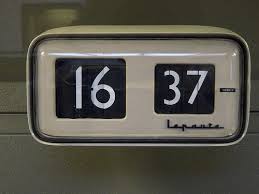Best of 2015: I don't want to work with companies, I want to work with people
NOTE: As 2015 winds down, so will 'regular' posts on the blog. For the next two weeks, I will be posting what I thought were the most interesting pieces I published in 2015. These were not necessarily the most popular or most shared, just the ones I think were most representative of the year in HR, HR Tech, workplaces, and basketball. Hope you enjoy looking back on the year and as always, thanks for reading in 2015.
Next up a piece from February, I don't want to work with companies, I want to work with people, a take on one of 2015's enduring themes - 'free agent nation/The Gig Economy'
I don't want to work with companies, I want to work with people
The hard thing about blogging sometimes is that for various and practical reasons you often can't write about stuff that actually happens in your actual life, personal or professional. Sometimes you have to change names, change details of a story, obscure some elements that might not be terribly important to the overall point, but at least give you some plausible deniability, (and protection as well, for the most part, most bloggers are not independently wealthy, i.e. we still need to make a living).
That disclaimer serves two purposes really; one, as an acknowledgement and reminder that there have been plenty of really interesting and potentially really very good posts that I and lots of other HR/workplace type bloggers have to quash in the interests of personal protection/employability. And two, as a preface to what I wanted to really write about, (getting to that next, I promise), which is based on some actual events with real people, but with the specific names left out and some details slightly changed. Ok, here we go...
One of the interesting aspects of the transforming nature of work and workers from corporate lifers into more entrepreneurial, flexible, contingent, and more or less free agents (who may affiliate with a company for a time for mutual benefit), is that customer/partner loyalty is now much more often tied to people and not organizations. Said a little differently, buyers and potential business partners are more and more drawn to the actual people involved in the project or transaction, and not so much, (if at all), their current, (and likely temporary) corporate affiliation.
The specific circumstances that caused me to think about happened last week, in two separate discussions I had with some HR industry folks. Both of these were concerning projects and initiatives where I had been working with, or at least working on collaborating with specific individuals that was interested in working with again. And in both cases, as these potential initiatives became socialized inside the corporate meeting rooms of the organizations where these folks are aligned, the geometry of the deals began to alter.
Suddenly, more (or different) folks needed to be involved. Now more higher-ups from these organizations had to have their opinion heard, (even when I had not talked with any of them previously). There was at least some reluctance in one of the cases by management to 'allow' their person to work with me on the project, as they wanted to have their other, preferred person, (who I did not ask for), leading the effort.
As more professionals see themselves as free agents, who affiliate with companies in more fluid, shorter, and transitory arrangements while simultaneously building their personal networks, professional portfolios, and reputations independent of any corporate overseer, these kinds of tensions will only increase. In the examples I cited above, I was led to and wanted to collaborate with specific individuals based on past experiences (prior to them arriving at their current roles), and personal conviction in these individual's ability and competence. Quite frankly, their current corporate affiliation does not really matter. At least to me.
But it does matter, naturally, to the folks that are the executives at these places, whose job it is to build, protect, strengthen, and make more valuable their company brands. But this will be increasingly more challenging, in many relationship-driven kinds of businesses anyway, when the company brand is really only comprised of a loose affiliation of individual brands, who are going to move in and out of the company umbrella more or less on-demand, and who have many more outside connections and relationships than in the past.
This 'free agent nation', this new world that is sometimes referred to as the 'Uber-ification' of work where most workers are essentially carving out their own personal careers, less dependent on organizational support (and protection) than before is one that puts not only these workers under more pressure than before, as they shoulder more personal risk than ever, but it also will stress their company brand owners as well. I don't think my perspective as a potential partner/customer is all that unique; I am interested in collaborating with the best people I can, and often, (and maybe soon always), I am not that interested in their 'official' titles or what their current company leadership believes how I should interact and engage with them. As sometimes I like to say, that is a 'you' problem, not a 'me' problem.
I guess I will leave with this - the free agent nation has delivered exceeding benefits to company brands - less fixed costs, less regulations, more flexibility, and even more profits. But there are some risks too. Some of your free agents don't really need the company brand as much as the brand needs them. And some of your best customers and partners want to work with people, not with companies. And as the ties between people and companies continue to loosen, (almost always at the behest of companies by the way), the company's hold on talent and opportunity and profit will loosen as well.
Have a great week!

 Steve
Steve



